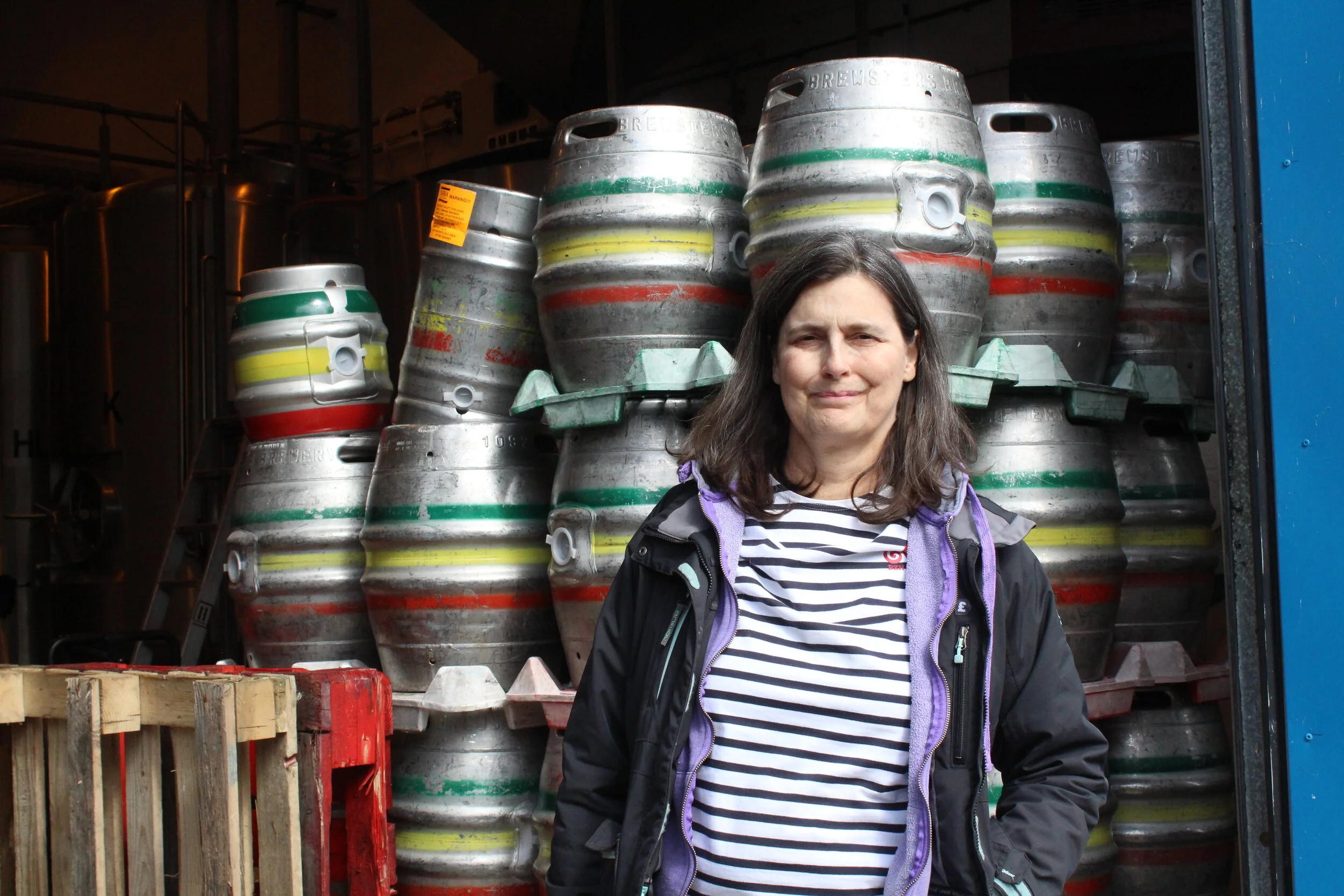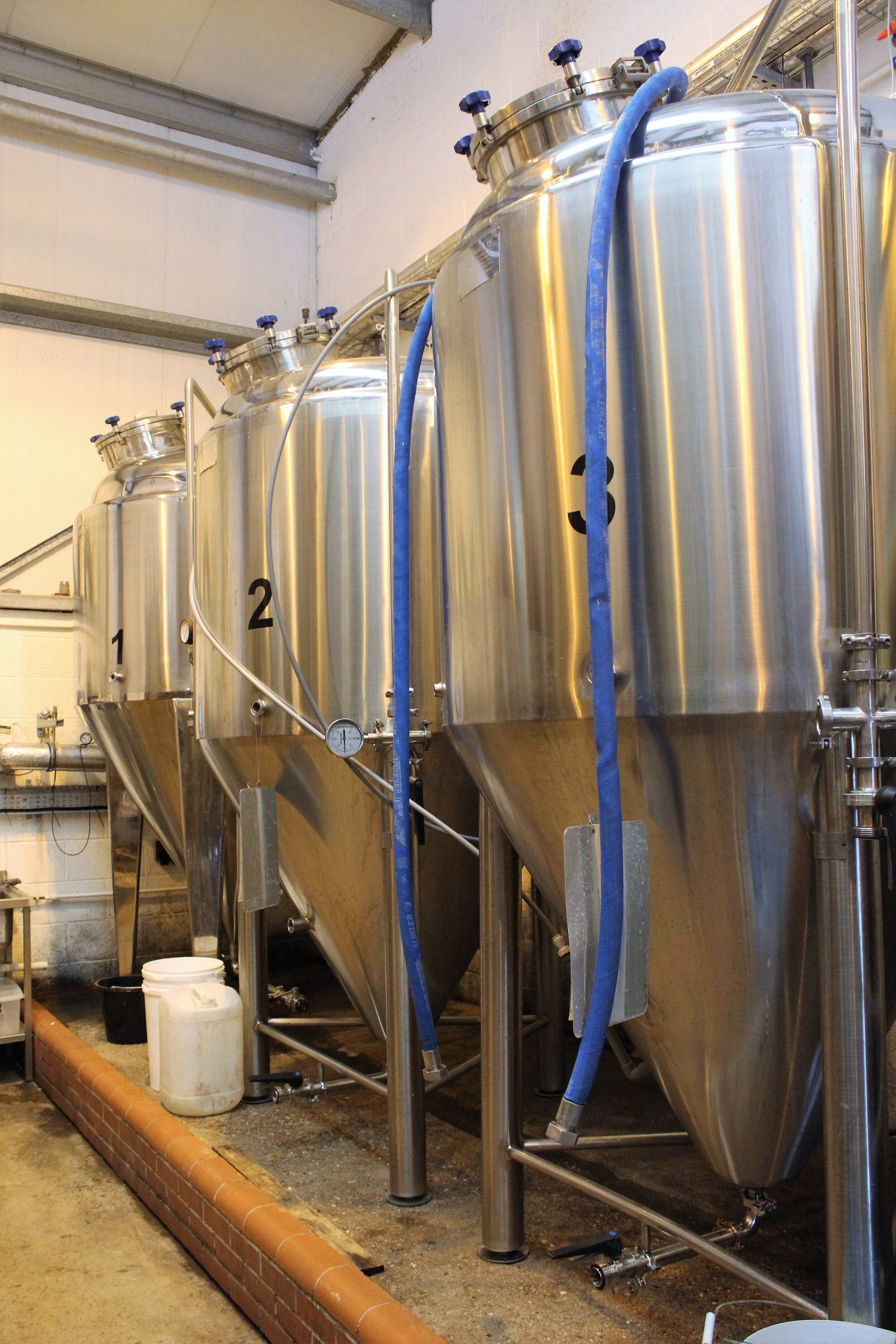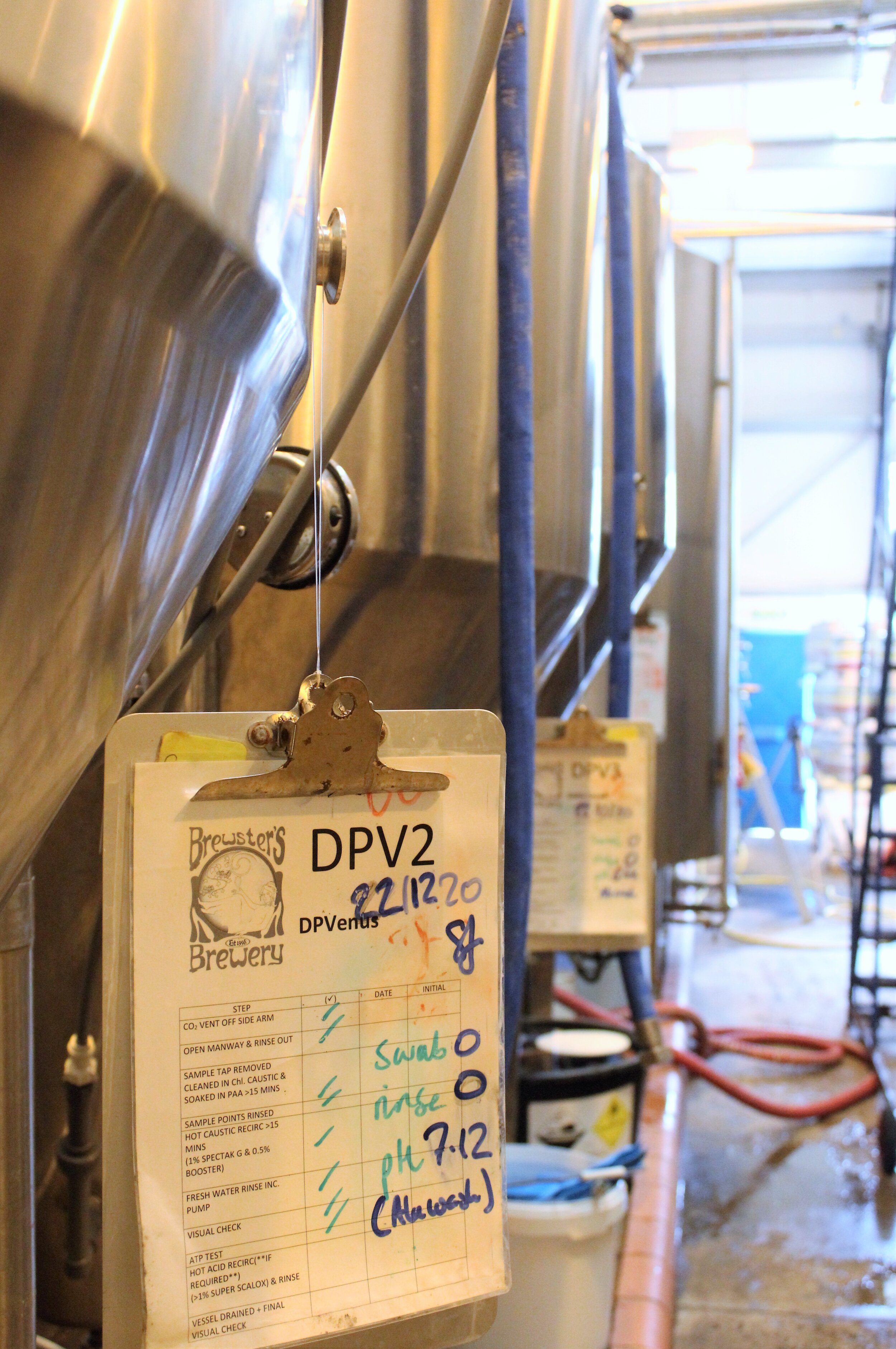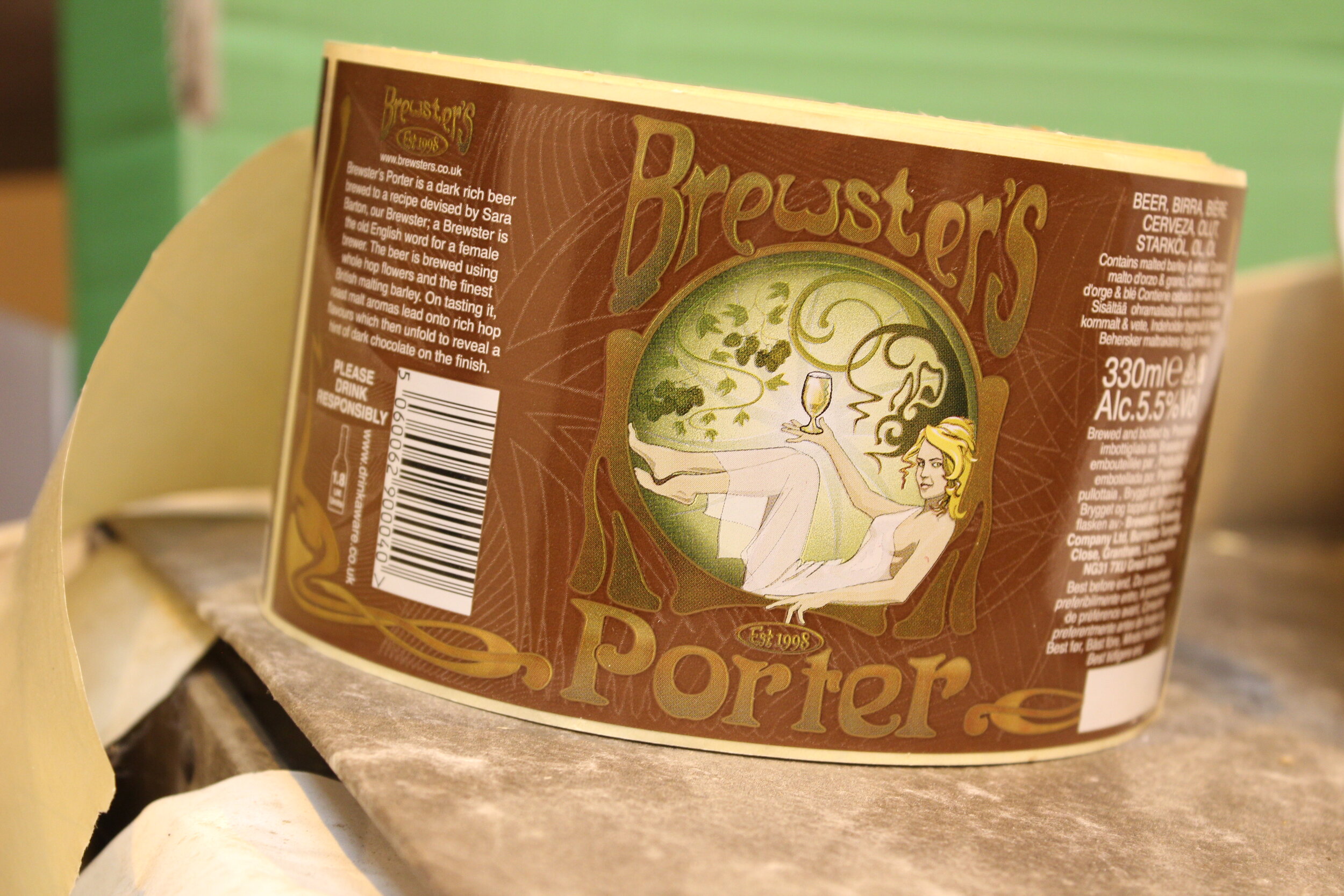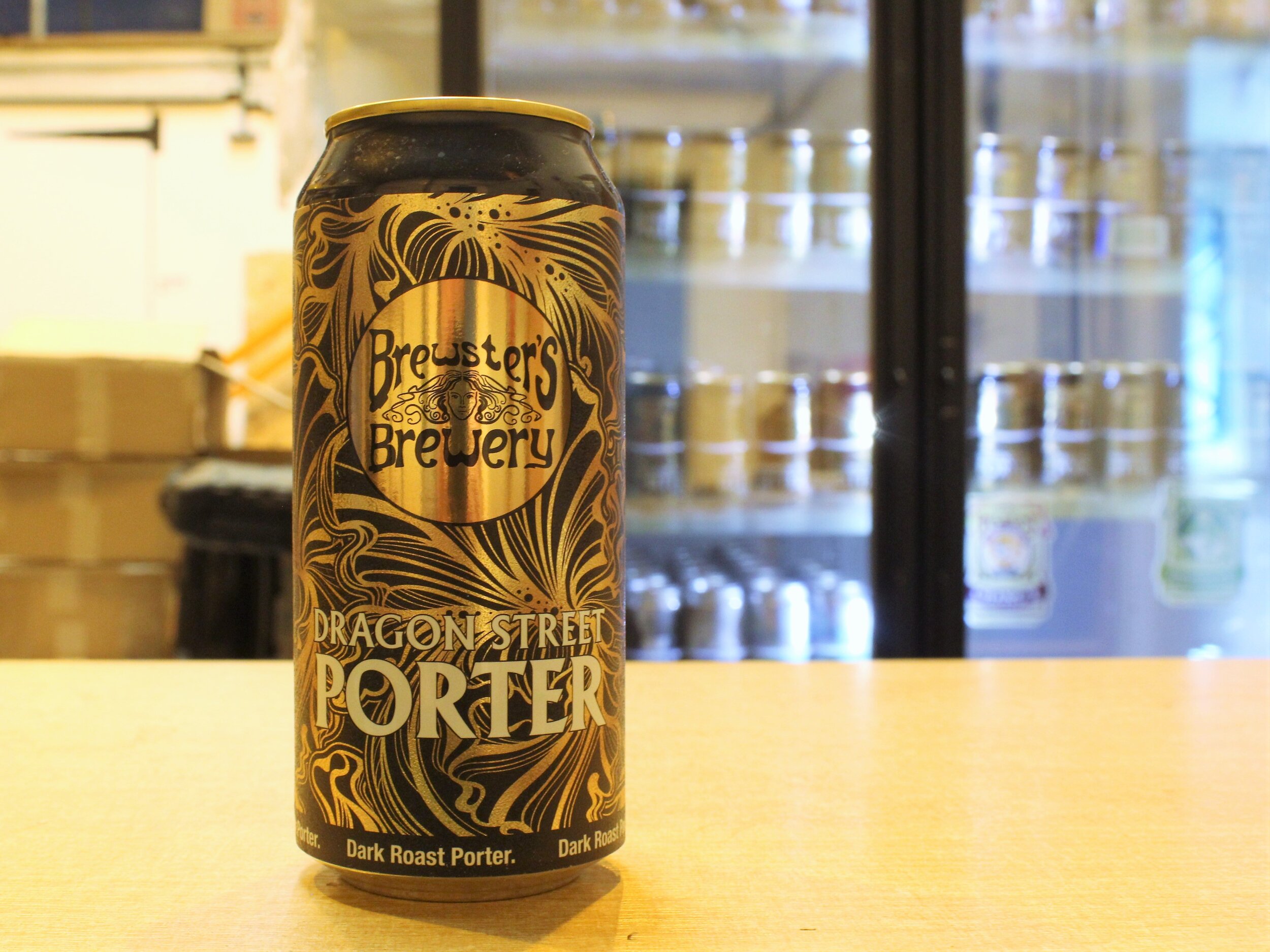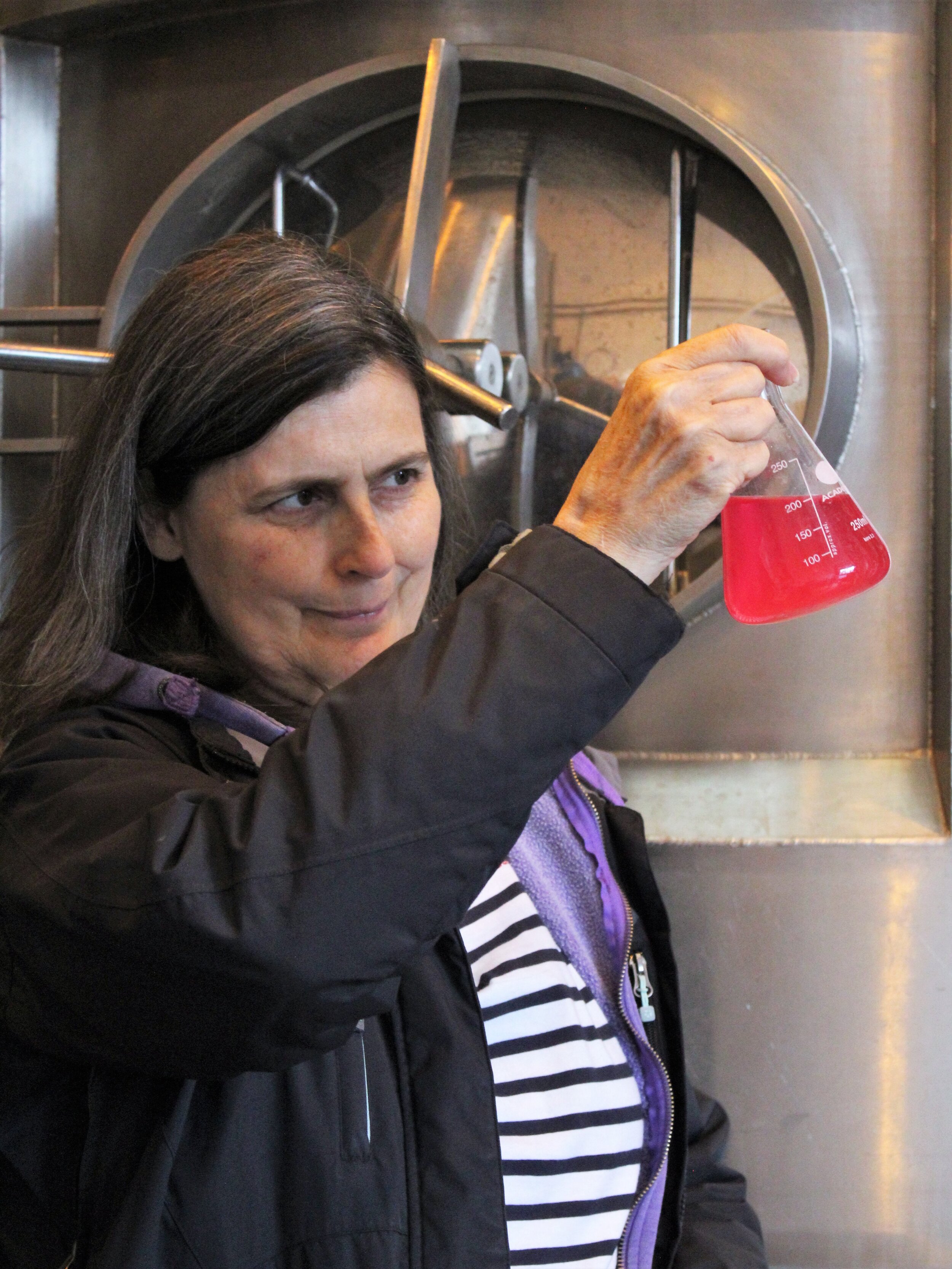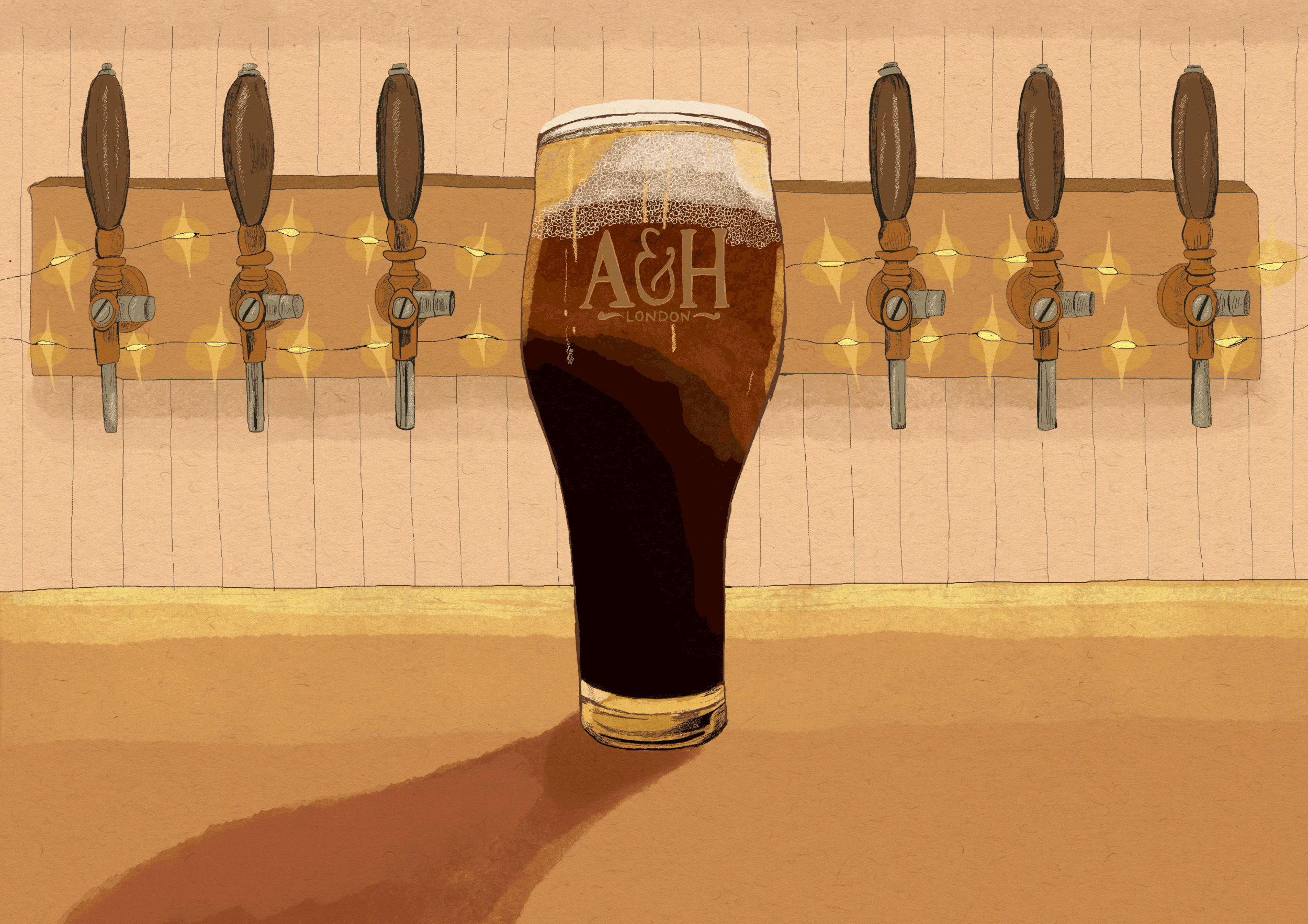Antidote to the Modern Age — Brewsters Brewery in Grantham, Lincolnshire
“It seemed like an antidote to the ugliness of the modern age.” – Stephen Smith, Sex and Sensibility: The Allure of Art Nouveau
The Art Nouveau art movement constructed a completely new aesthetic. Brewster's Brewery, led by founder Sara Barton, has also gone its own way to evolve a unique style. It crafts precise incarnations of traditional English ales, imprinted with a memorable Art Nouveau inspired brand. They specialise in hop-forward beers, but Sara exhibits virtuosity across a full spectrum of beer styles.
Photography by Laura Hadland
After completing her brewing Master’s degree at Heriot-Watt University in Edinburgh in 1988, Lincolnshire-born Sara joined Courage Brewery’s then-graduate training scheme. While not the first-ever woman on the brewing team, she was one of their earliest female Production Managers.
The heavily industrialised brewing processes at Courage did not inspire Sara. Her role was “effectively a computer programmer”—starting the brew, then checking no valves opened unintentionally to dump the beer down the drain. Just as the proponents of the Art Nouveau movement eschewed the industrial in favour of the handcrafted, Sara felt that large scale commercial brewing “didn’t have the heart in it.” She dreamed of setting up her own business to develop the artisanal practise of her craft.
After receiving an MBA at the Bradford School of Management—taken to prepare the ground for her own business—Sara’s career took an unexpected detour. She was recruited by a big pharmaceutical company and later moved to manufacturing sugar syrups; the lure of a regular wage to feed the mortgage was hard to resist. It was ten years before she was able to reap the rewards of those early efforts in brewing.
In 1996 Sara obtained planning permission for a small brewhouse in the barn behind her parent’s house at Stathern in the Vale of Belvoir, along the border of Lincolnshire and Leicestershire. The first batch—named Maiden Brew—was brewed in 1997 and Brewsters officially launched in January 1998. Thanks to the enthusiastic support of a local pub, The Red Lion, the business was quickly able to establish itself within the local community. Gradually Sara took on staff, eventually even bringing her husband on board as the brewery’s accountant.
All of the profits were reinvested into the business, the brewery eventually moving to Grantham, Lincolnshire in 2006. While its original location may have been idyllic, it was too rural to be efficient; lorries collecting casks and kegs struggled to get down the narrow farm tracks. The new brewery was much bigger, and had access to mains drainage. Most importantly, it was located just off the A1, which might sound as exciting as a wet weekend in Doncaster, but it was a truly game-changing moment for Brewsters.
There is no romance in their location: an unremarkable industrial estate, where rows of corrugated warehouses are surrounded by great metal fences and stacked shipping containers. But making its beer easier to access helped them to take a great leap forward, growing their capacity and enabling a constant supply of Brewsters beer to the burgeoning craft beer scene in Italy, where it remains popular to this day.
***
Over time, Brewsters’ branding has also evolved. Sara had consciously avoided selecting a name for her brewery that was linked to a certain place in case they needed to relocate, but a number of beer names do speak to their location in the Vale.
She had looked up the medieval word “brewster” and thought that the historic term for a female brewer would draw the eye as a brand. Sara also looked to the past for inspiration to create Brewsters’ visual aesthetic. Art Nouveau was characterised by the use of long sinuous lines that ran organically without rules or restriction. Visual representations of women were common, and were adopted by Brewsters to represent female emancipation.
““If I was looking for one of the best bitters in the country, I would look for Brewsters on cask.””
A typical figurative Art Nouveau image was used on the packaging; a successful design at first, but as uneasiness about sexism in the industry became a growing topic of discussion it was seen as inappropriate by some. Ironically, the flowing, flimsy garments of the Art Nouveau heroine which attracted negative comment were originally a statement of her independence from the stifling girdles and restrictions of Victorian society.
Sara was not deaf to the complaints. The messaging needed to be clearer. Brewsters experimented with more abstract designs within the same aesthetic for their canned and bottled beers, while retaining an evolution of their figurative heroine on the cask beers.
Welcoming the opportunity to rebrand has made the brewery feel more contemporary, yet simultaneously more rooted, more grounded. Sinuous Art Nouveau forms and a sense of history flow through the visual aesthetic. There are swirling lines and glinting golds, twirling with muted dusty pastel shades.
Now the billowing, golden haired woman on the Brewsters logo mirrors the form of the Belvoir Angels: carvings made on headstones in the Vale during the Early Modern period. Despite how crowded the beer market is today, Brewster’s cans jump off the shelf; tactile with shiny gold and the texture of historic wallpaper, commanding your attention.
***
Brewsters has been winning top brewing accolades for over 20 years because Sara is fiercely consistent in producing beers of quality. In 2012, she became the first woman to be named Brewer of the Year at the annual British Guild of Beer Writers Awards.
Growing up in Nottingham, Wild Card Brewery’s Head Brewer Jaega Wise has always been around Brewster’s beers.
“I’ve always held Sara’s beers in high esteem,” Wild Card Brewery’s Jaega Wise tells me. Growing up in nearby Nottingham, she’s always been familiar with Brewster’s beers.
“[Sara] has great poise and a great balance in her beer. Her fundamentals of brewing are always of the highest standard. Every single cask you bought from her would be perfect in terms of condition,” she says. “She is at the top of her game and has been at the top, consistently, for a long time. If I was looking for one of the best bitters in the country, I would look for Brewsters on cask.”
Jaega is undoubtedly referring to Marquis, a 3.8% English session bitter, which took off after being brewed as a one-off for the filming of the regional magazine programme Heart of the Country. During the Countryfile-style featurette the actual Marquis of Granby enjoyed a pint of Marquis, in the Marquis of Granby pub, at Granby. They haven’t stopped brewing it since.
““To my mind, producing a perfectly lovely pint of cask beer is the real craft.””
The pub is also the brewery’s tap house, and the first to be named after an 18th century Marquis: Lieutenant General John Manners. He infamously led the cavalry charge against the French during the Battle of Warburg in 1760. Legend tells that he lost his wig during the charge and the light shining on his bald pate guided the troops behind him. A keen drinker himself, he gave many of his men pensions which they invested in inns upon their return to England, hence the Marquis being immortalised in many pub names.
Perhaps the most well-known beer in the Brewsters pantheon is Hophead (not to be confused with the Dark Star beer of the same name.) This 3.6% session bitter blends English and American hops to give citrus and blackcurrant notes. Sara and her team have been brewing this beer for over 20 years, and it’s won them a clutch of awards including Gold at the national SIBA awards in 2007 and at the International Brewing Awards in 2015. Hophead has also been a finalist at CAMRA’s Champion Beer of Britain competition no fewer than three times.
Brewsters was also one of the first British breweries to use the coveted New Zealand hop variety Nelson Sauvin in a beer called Decadence. It caught the attention of veteran beer writer Roger Protz, who in his 2005 book 300 Beers to Try Before You Die gleefully described its character of “hop resins and [a] cracker-like maltiness.” The beer won silver at the 2009 SIBA awards and reportedly has a cult following in Lincoln where news of Decadence being put on the bar spreads like wildfire.
***
In the early 2010s, Sara read about the Pink Boots Society in the United States. The organisation—itself set up in 2007, aiming to “assist, inspire and encourage” women in the alcoholic beverage production industries—had orchestrated a collaborative brew called Project Venus, with the intention of bringing women brewers from across the US together.
Sara was inspired to try something similar in the UK and so teamed up with Burnt Mill head brewer Sophie de Ronde, and beer sommelier and author Jane Peyton. The UK version of Project Venus began in 2011 as a loose collaboration of female brewers to have fun, brew together and find a professional network that was previously absent. After seven years of annual collaborations, the project has morphed into the International Women’s Day Collaborative Brew, taking place nationally at breweries including Burnt Mill, Neptune, Cloudwater and Wild Card.
“It’s great to see the next generation take it on'' Sara tells me.
Like the devotees of Art Nouveau, Sara relishes being able to focus on her craft. Now, she is cautiously returning to brewing cask ale after a hiatus caused by the pandemic. She admits it’s “real finger in the wind time” for her business. For now, she is focusing on brewing their decades-old bestsellers, Hophead and Marquis.
With just a single early non-discretionary grant from the council and no income from the pub, Brewsters has had to think on its feet in these tumultuous times. Like many others, the brewery set up an online shop, but having to hire mobile packaging firms to get its beer into cans sucked up a lot of potential profit. They hope to install their own canning line, but considering a tens of thousand pound capital investment is understandably a bit teeth-clenching, especially as things are at the moment.
“Sometimes you have to be brave and invest in the down times even though it goes against the grain,” Sara says. “To my mind, producing a perfectly lovely pint of cask beer is the real craft.”


